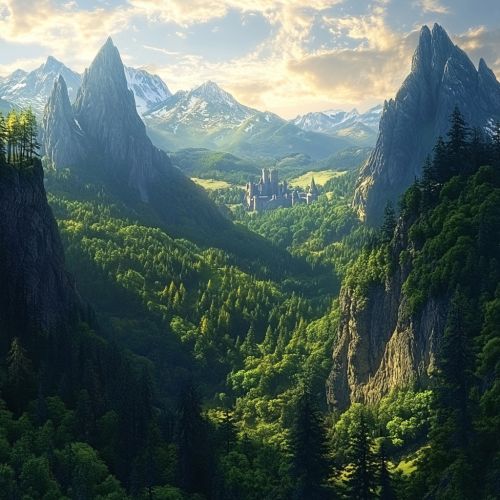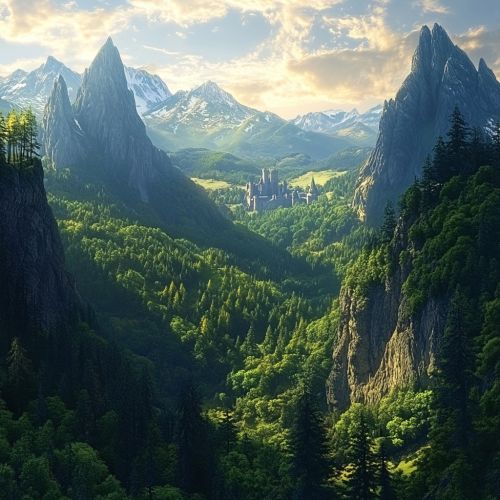High Fantasy
Definition and Characteristics
High Fantasy, also known as epic fantasy, is a subgenre of fantasy literature that is set in an imaginary world distinct from our own. This genre is characterized by its grandiose settings, complex plots, and often involves a struggle between good and evil. High Fantasy typically includes elements such as magic, mythical creatures, and elaborate world-building.
Origins and Evolution
The roots of High Fantasy can be traced back to ancient mythologies and legends, which often featured gods, heroes, and fantastical creatures. However, the modern conception of High Fantasy was significantly shaped by the works of authors such as J.R.R. Tolkien, whose seminal work, "The Lord of the Rings," set a benchmark for the genre. Tolkien's meticulous world-building, complete with its own languages, histories, and cultures, has influenced countless authors and remains a cornerstone of High Fantasy literature.
World-Building
One of the most defining aspects of High Fantasy is its emphasis on world-building. Authors create intricate and immersive worlds with their own geography, history, politics, and cultures. These worlds often include detailed maps, unique flora and fauna, and complex social structures. The process of world-building involves creating a consistent and believable setting that enhances the narrative and provides a backdrop for the characters' adventures.
Themes and Motifs
High Fantasy often explores themes such as the hero's journey, the battle between good and evil, and the quest for power or knowledge. Common motifs include the chosen one, magical artifacts, and ancient prophecies. These themes and motifs are used to create a sense of epic scale and to convey moral and philosophical messages.
Notable Works and Authors
In addition to J.R.R. Tolkien, other notable authors in the High Fantasy genre include C.S. Lewis, Robert Jordan, and George R.R. Martin. C.S. Lewis's "The Chronicles of Narnia" series, Robert Jordan's "The Wheel of Time" series, and George R.R. Martin's "A Song of Ice and Fire" series have all made significant contributions to the genre and have garnered large followings.
Influence on Other Media
High Fantasy has had a profound impact on various forms of media, including film, television, and video games. The success of film adaptations such as "The Lord of the Rings" and "Game of Thrones" has brought the genre to a wider audience and has inspired numerous other adaptations and original works. Video games such as "The Elder Scrolls" series and "Final Fantasy" series also draw heavily from High Fantasy tropes and settings.
Criticism and Controversies
While High Fantasy is beloved by many, it has also faced criticism. Some critics argue that the genre can be formulaic and overly reliant on clichés. Others point out that High Fantasy often lacks diversity and can perpetuate stereotypes. There is ongoing discussion within the literary community about how to address these issues and create more inclusive and innovative works within the genre.
Future of High Fantasy
The future of High Fantasy looks promising, with new authors and works continuing to emerge. There is a growing interest in subverting traditional tropes and exploring more diverse perspectives. As the genre evolves, it will likely continue to captivate readers and inspire new generations of writers and creators.


